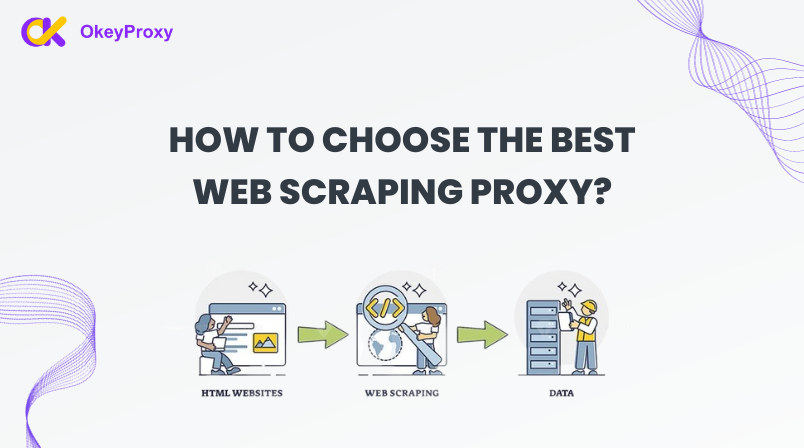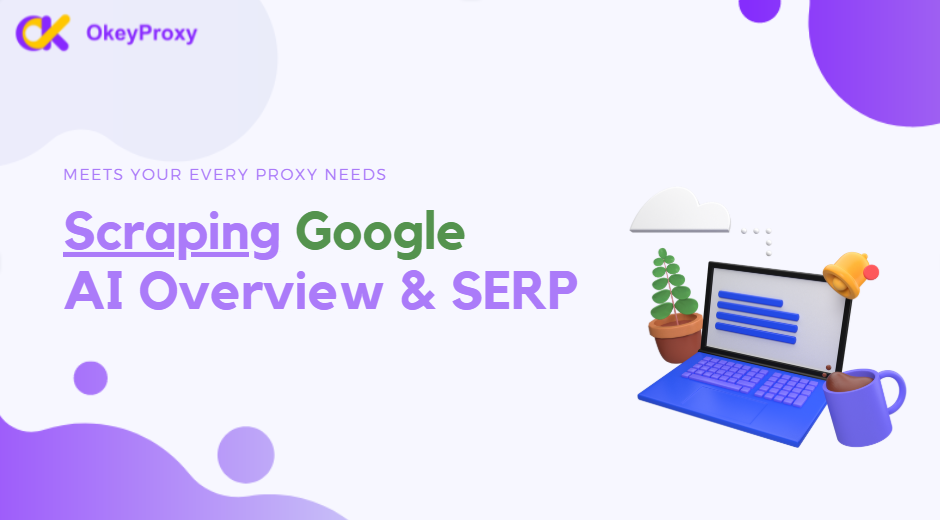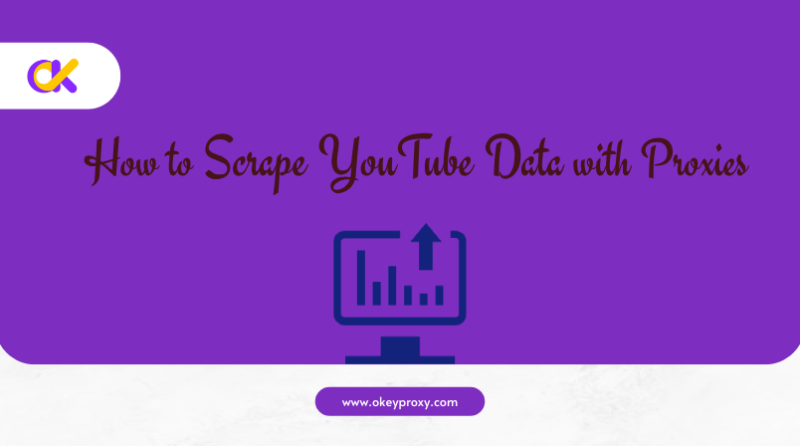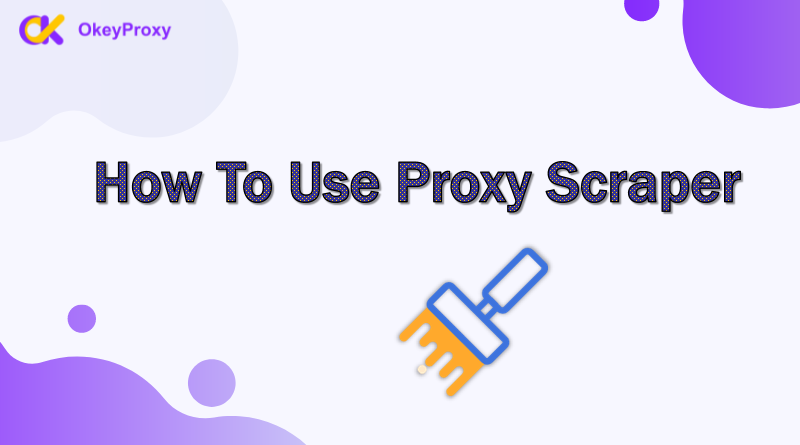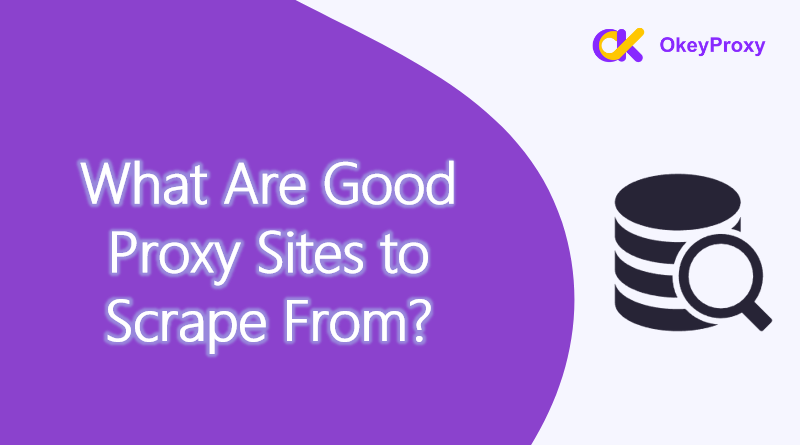Since web scraping requires a large number of requests to the server from a certain IP address, the server may detect too many requests and may block the IP address to stop further scraping. To avoid blocking we use a proxy and when the IP address changes the scraping continues to work without causing any issues. It also helps hide the IP address with anonymity.
In this article, we’ll take a look at the world of scraping proxy, learn about proxy protocols and fingerprinting in web scraping, and how to choose the best web scraping proxy for you.
Proxy Protocols In Web Scraping
There are two main proxy protocols used today: HTTP and SOCKS (the latest SOCKS5).
For web scraping proxy, there isn’t much practical difference between the two protocols. SOCKS protocols tend to be faster, more stable, and more secure. HTTP proxies, on the other hand, are more widely adopted by proxy providers and HTTP client libraries for web scraping.
Fingerprinting in Web Scraping
Fingerprinting is a technique used by websites to identify and track users based on their unique information or behavior. This could include data such as the user’s browser, operating system, screen resolution, and more.
For web scraping proxy, fingerprinting can pose a challenge as it can lead to detection and subsequent blocking. However, advanced scraping proxies can help overcome this issue by rotating not only the IP addresses but also other identifying information, thus providing a different ‘fingerprint’ with each request.
So how do we apply this information in a web scraping proxy?
We need to use IPs with high trust scores to avoid being blocked by web scrapers. That is, we should avoid IP addresses with weak metadata data points—any IP addresses that indicate a data center origin or an untrustworthy owner. When scraping at scale, we want to diversify our connections by using a proxy pool of high-trust score IP addresses. Variety is key here, as even high trust score addresses can lose their effectiveness during periods of high connectivity.
Shortly, to bypass web scraper blocking, we need a diverse pool of residential or mobile proxies.
What Are Your Web Scraping Proxy Options?
There are four types of web scraping proxies:
1. Datacenter proxies: These proxies come from cloud service providers and are sometimes flagged because many people use them, but since they are cheaper, proxy pools can be used for web scraping activities.
2. Residential IP Proxies: These proxies contain the IP address from the local ISP so the website administrator cannot detect whether it is a scraper or a real person browsing the website. They are costly compared to data center proxies and may attract legal consent as the owner is unaware if you are using their IP for web scraping purposes.
3. Mobile IP Proxies: Mobile IPs are assigned by mobile service providers (e.g. 4G, etc.) and since they are dynamically assigned to anyone around the cell tower, they are not tied to a single individual, which means the risk of them being blocked or forced to go through a CAPTCHA is low, but they are usually expensive.
4. ISP Proxy: It’s also called a static residential proxy hosted by a server located in a data center and used to identify real users. ISP proxies can be a combination of data center proxies and residential proxies.
Notes: Residential proxies are the best for web scraping as they are owned by trustworthy ASNs (for example public ISPs) so connections made by these IP addresses are more trustworthy.
Can I Use A Free Proxy For Web Scraping?
Free web scraping proxies might seem like a cost-effective solution, especially for beginners looking for free learning opportunities. However, their limitations not only lead to increased blockages but also require in-depth knowledge of the basics. Although they are attractive, they often lack reliability. Additionally, they can be dangerous for exposing users to potential security breaches and data theft.
Best Web Scraping Proxies In 2023
When it comes to choosing the best web scraping proxies, several factors need to be considered, such as reliability, speed, anonymity level, and cost. Here are a few top-rated options:
- Oxylabs: Known for its large pool of residential proxies, Oxylabs offers excellent speed and reliability. It supports IP rotation and provides robust technical support.
- Smartproxy: This provider offers both residential and data center proxies. It stands out for its user-friendly dashboard, excellent customer support, and competitive pricing.
- OkeyProxy: OkeyProxy provides 150M+ real residential IPs from 200+ countries, giving you carefree access to any web content and ensuring that your access can never be detected or blocked. Top 5 Socks5 Proxy Provider with 150M+ Residential Proxies from 200+ Countries. 70% Off Now! Only $700/1000G! Get 1GB free Trial of Residential Proxies Now!
- ScraperAPI: Designed specifically for web scraping, ScraperAPI handles proxies, browsers, and CAPTCHAs, allowing developers to focus on extracting data.
- NetNut: NetNut offers high-speed residential proxies and is particularly praised for its stable connections and excellent customer service.
In conclusion, to avoid being blocked web scrapers should use a pool of diverse, quality proxy IP addresses. By understanding the proxy protocols and fingerprinting in web scraping, and learning about choosing the right proxy provider, businesses can significantly enhance their data extraction capabilities and gain valuable insights.
Related Articles:
https://www.okeyproxy.com/proxy/web-scraping-proxy-an-extensive-guide/
https://www.okeyproxy.com/en/blog/Best-SOCKS5-Proxies-for-Carding-Enhancing-Security-and-Anonymity

